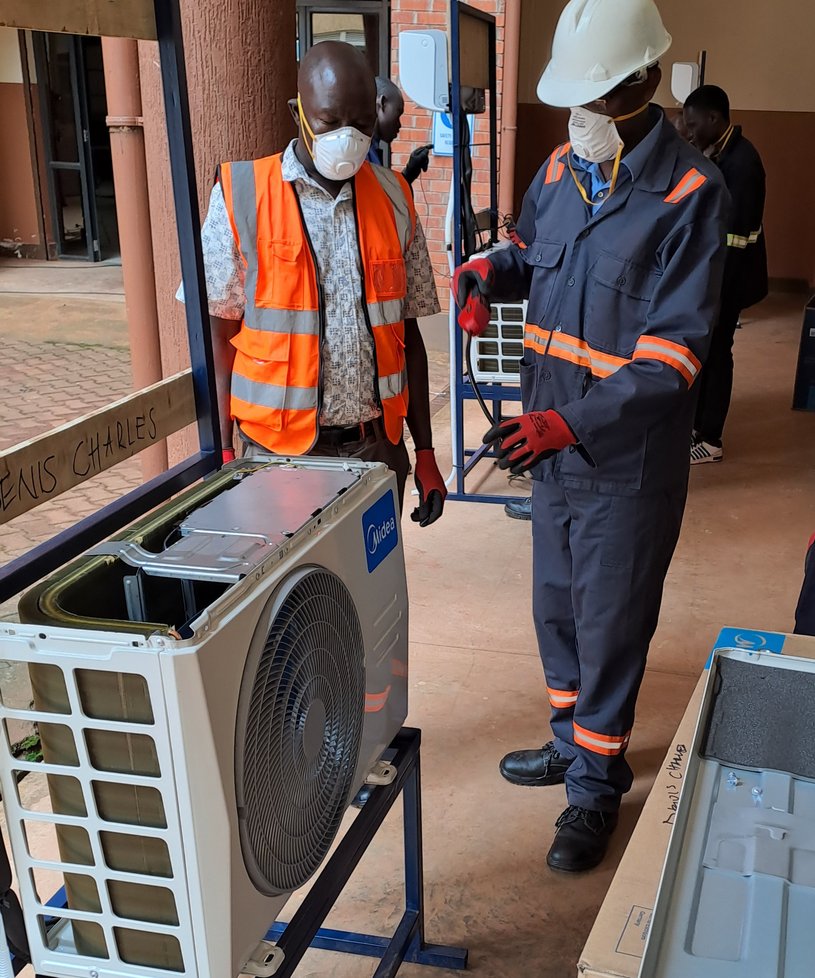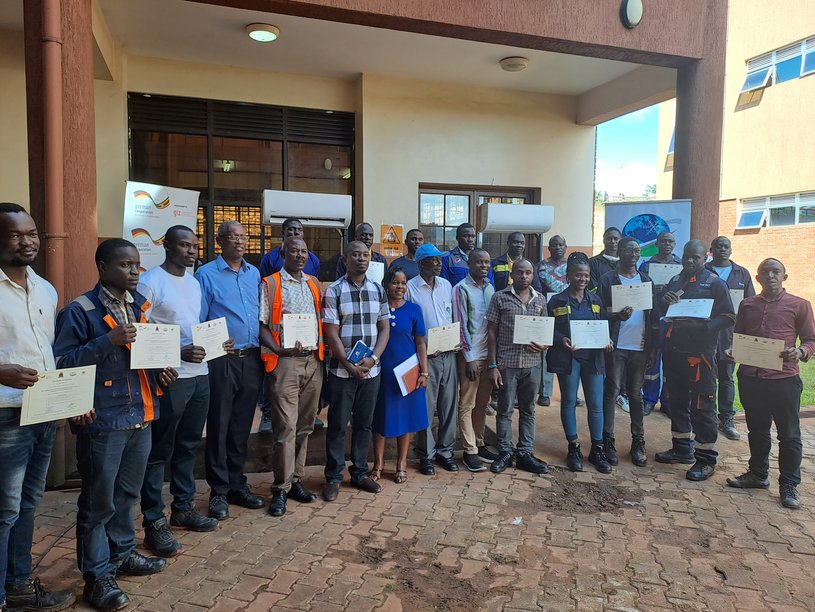Several treaties on the control and elimination of substances that contribute to global warming have been signed worldwide. These include the Vienna Convention for the protection of the ozone layer, the Montreal Protocol on substances that deplete the Ozone layer, the Kyoto Protocol, and most recently, the Kigali Amendment to the Montreal Protocol.
Within these treaties, it is commonly held that while refrigerants play a critical role in modern cooling systems, their impact on the environment and safety is substantial and must not be overlooked. There is also a growing interest in natural refrigerants such as propane, butane, and carbon dioxide as alternatives to conventional synthetic options. These natural refrigerants offer low environmental impact but must be handled carefully, due to their combustible nature.
In recognition of these advancements and to build capacities on the safe handling and use of natural refrigerants, the Green Cooling Initiative, supported by the GIZ Global Carbon Markets Program, and commissioned by the German Federal Ministry for the Environment, Nature Conservation, Nuclear Safety and Consumer Protection held a training of trainers, technicians and dealers from 8th to 12th May 2023 at Kyambogo University, Kampala. The training was implemented together with the National Environmental Management Authority (NEMA), Kyambogo University, and Uganda National Association of Refrigeration and Air Conditioning (UNARA).
The training, attended by over 16 national technical institution instructors, private sector dealers, and technicians imparted theoretical and practical teachings on refrigeration and air conditioning. Topics included:
- Tools and safety, use of pressing connectors, worksite preparation, and inert gas brazing demonstration,
- Flammable gas cylinder handling, regulations, safety standards and guidelines, procedures, tools, and equipment, and
- Installation, commissioning, and servicing of ACs that use R290 refrigerant/propane, which though energy efficient and environmentally friendly, is highly flammable.

The trainees also engaged in preparation for installation, routing, and supporting refrigerant transfer pipes, insulation of tubing commissioning, and repair or modification of a system.
The training focused on these key areas because natural refrigerants have gained prominence as sustainable alternatives due to their low global warming and zero ozone depletion potential. Hydrocarbons such as propane and butane further offer excellent thermodynamic properties, energy efficiency, and low environmental impact.
Speaking at the closing ceremony, where participants received training certificates, Dr. Maureen Ssempijja, the Head of the Mechanical and Production Engineering department, Kyambogo University, who is also the President UNARA emphasized the importance of practical training in the Refrigeration and Air Conditioning (RAC) sector and urged the certified trainees to always implement best practices in handling flammable refrigerants, so as to ensure that they themselves and users can use them safely.

